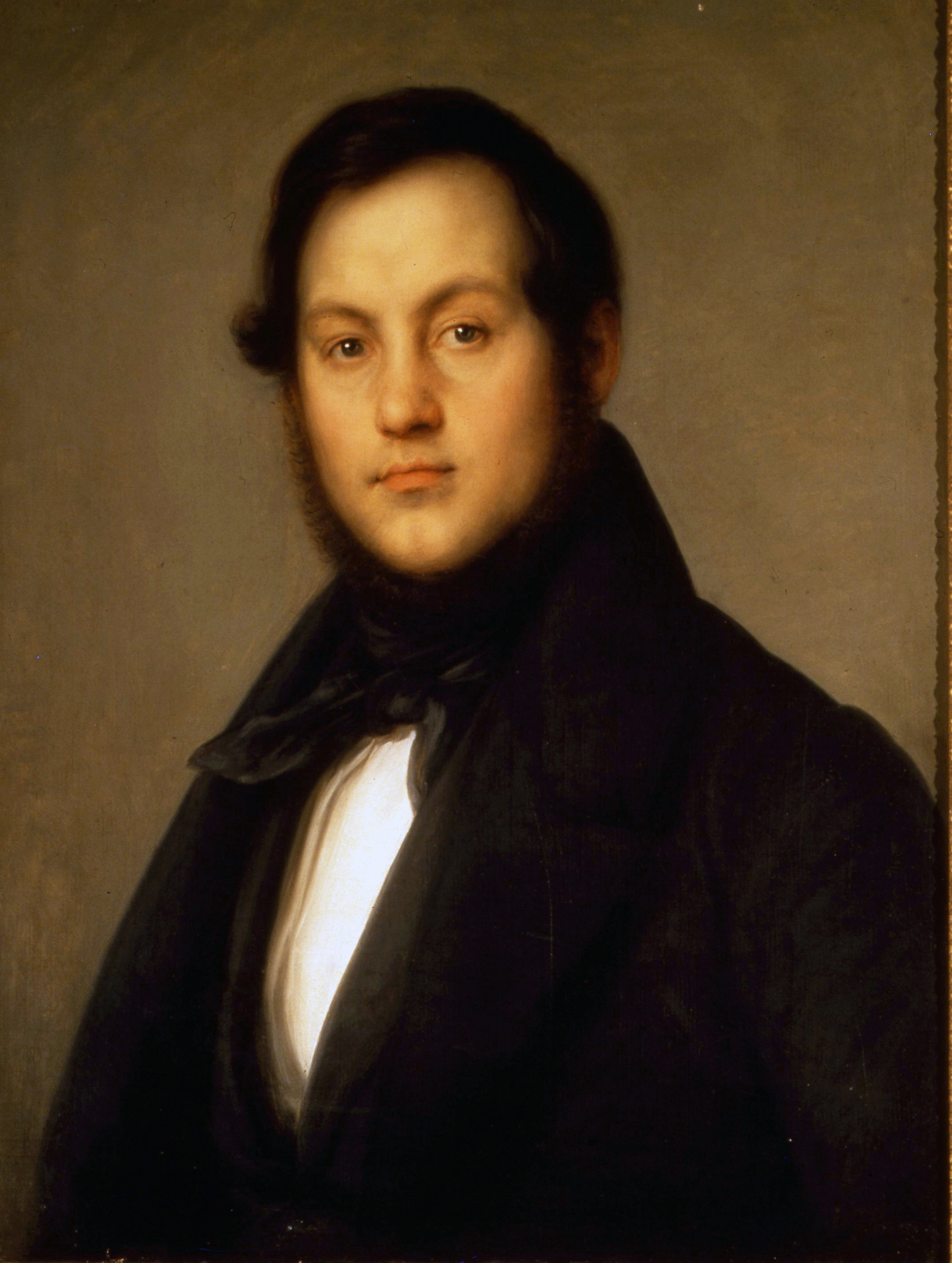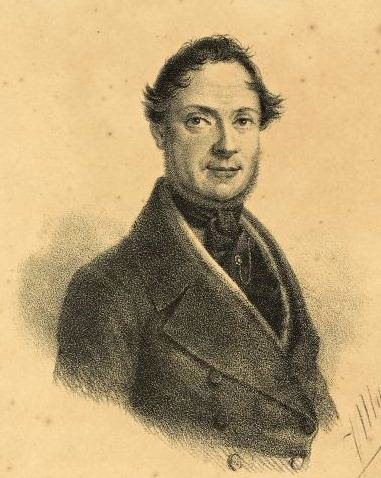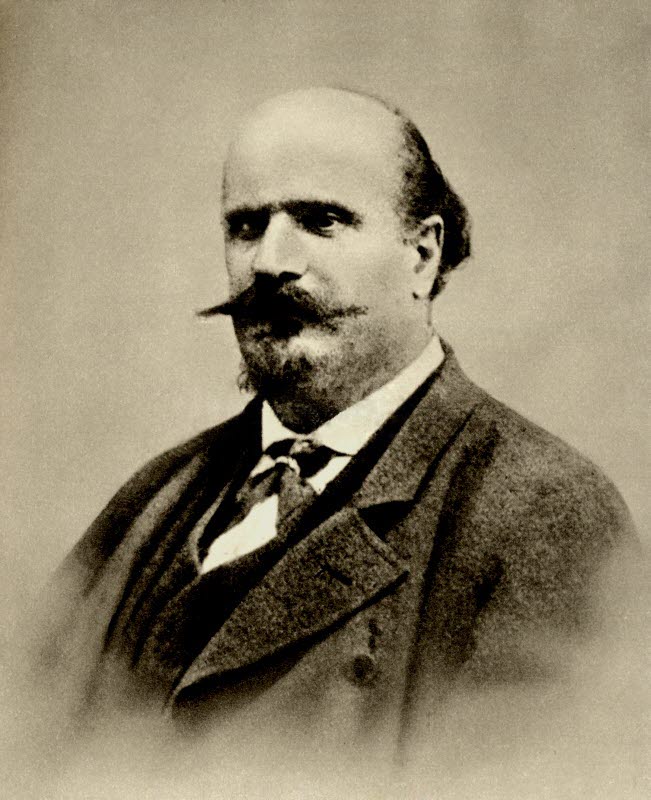|
Ignazio Marini
Ignazio Marini (28 November 1811 – 29 April 1873) was a celebrated Italian operatic bass. He sang in the world premieres of several operas by Gaetano Donizetti, Saverio Mercadante, and Giuseppe Verdi and appeared as a guest artist in major opera houses throughout Europe and in New York City, Mexico City and Cairo. Biography Ignazio Marini was born in Tagliuno near Bergamo and made his stage debut in Brescia in 1832. In 1834 he became a principal singer at La Scala where he sang for the next thirteen years and created, amongst other roles, Guido in Donizetti's ''Gemma di Vergy'' (1834), Talbot in Donizetti's ''Maria Stuarda'' (1835), Enrico Gray in Vaccai's ''Giovanna Gray ''Giovanna Gray'' is a tragic opera () in three acts composed by Nicola Vaccai. The libretto by Carlo Pepoli is based on the last days of the English noblewoman Lady Jane Grey who was executed for treason in 1554. The opera premiered on 23 February ...'', and the title role in Verdi's '' Oberto'' (1839 ... [...More Info...] [...Related Items...] OR: [Wikipedia] [Google] [Baidu] |
Ignazio Marini 1848
Ignazio () is a masculine Italian given name. Notable people with the name include: Arts *Ignazio Collino (1736–1793), Italian sculptor *Ignazio Fresu (born 1957), Italian sculptor *Ignazio Gardella (1905–1999), Italian architect and designer *Ignazio Hugford (1703–1777), Italian painter *Ignazio Marabitti (1719–1797), Sicilian sculptor *Ignazio Oliva (17th century), Italian painter *Carlo Ignazio Pozzi (1786–1842), Italian painter and architect * Ignazio Stern (1679–1748), Austrian painter Literature *Ignazio Buttitta (1899–1997), Sicilian dialectal poet *Ignazio Giorgi (1675–1737), Italian poet and translator *Ignazio Silone (1900–1978), Italian novelist and poet Music *Ignazio Albertini (1644–1685), Italian violinist and composer *Ignazio Cirri (1711–1787), Italian organist and composer *Ignazio Boschetto, Italian singer-songwriter & member of Il Volo *Ignazio Donati (1570–1638), Italian composer *Ignazio Fiorillo (1715–1787), Italian composer *Igna ... [...More Info...] [...Related Items...] OR: [Wikipedia] [Google] [Baidu] |
Giovanna Gray
''Giovanna Gray'' is a tragic opera () in three acts composed by Nicola Vaccai. The libretto by Carlo Pepoli is based on the last days of the English noblewoman Lady Jane Grey who was executed for treason in 1554. The opera premiered on 23 February 1836 at La Scala, Milan, with Maria Malibran in the title role. It was a failure at its premiere, and the work never entered the repertoire. Malibran's performances in ''Giovanna Gray'' were the last time she appeared on the stage of La Scala. Background ''Giovanna Gray'' marked Vaccai's return to opera composing after a hiatus of almost 8 years. He composed it specifically for Maria Malibran who had often sung Romeo in his earlier opera (and his only major success), ''Giulietta e Romeo''. As a vehicle for one of the reigning prima donnas of the day, the tragic story of Lady Jane Grey was an apt one and had been the inspiration for numerous plays, poems, and paintings. Donizetti had thought of using it when his opera ''Maria Stuarda'' ra ... [...More Info...] [...Related Items...] OR: [Wikipedia] [Google] [Baidu] |
19th-century Italian Male Opera Singers
The 19th (nineteenth) century began on 1 January 1801 ( MDCCCI), and ended on 31 December 1900 ( MCM). The 19th century was the ninth century of the 2nd millennium. The 19th century was characterized by vast social upheaval. Slavery was abolished in much of Europe and the Americas. The First Industrial Revolution, though it began in the late 18th century, expanding beyond its British homeland for the first time during this century, particularly remaking the economies and societies of the Low Countries, the Rhineland, Northern Italy, and the Northeastern United States. A few decades later, the Second Industrial Revolution led to ever more massive urbanization and much higher levels of productivity, profit, and prosperity, a pattern that continued into the 20th century. The Islamic gunpowder empires fell into decline and European imperialism brought much of South Asia, Southeast Asia, and almost all of Africa under colonial rule. It was also marked by the collapse of the la ... [...More Info...] [...Related Items...] OR: [Wikipedia] [Google] [Baidu] |
Operatic Basses
Opera is a form of theatre in which music is a fundamental component and dramatic roles are taken by singers. Such a "work" (the literal translation of the Italian word "opera") is typically a collaboration between a composer and a librettist and incorporates a number of the performing arts, such as acting, scenery, costume, and sometimes dance or ballet. The performance is typically given in an opera house, accompanied by an orchestra or smaller musical ensemble, which since the early 19th century has been led by a conductor. Although musical theatre is closely related to opera, the two are considered to be distinct from one another. Opera is a key part of the Western classical music tradition. Originally understood as an entirely sung piece, in contrast to a play with songs, opera has come to include numerous genres, including some that include spoken dialogue such as ''Singspiel'' and ''Opéra comique''. In traditional number opera, singers employ two styles of singing: ... [...More Info...] [...Related Items...] OR: [Wikipedia] [Google] [Baidu] |
1873 Deaths
Events January–March * January 1 ** Japan adopts the Gregorian calendar. ** The California Penal Code goes into effect. * January 17 – American Indian Wars: Modoc War: First Battle of the Stronghold – Modoc Indians defeat the United States Army. * February 11 – The Spanish Cortes deposes King Amadeus I, and proclaims the First Spanish Republic. * February 12 ** Emilio Castelar, the former foreign minister, becomes prime minister of the new Spanish Republic. ** The Coinage Act of 1873 in the United States is signed into law by President Ulysses S. Grant; coming into effect on April 1, it ends bimetallism in the U.S., and places the country on the gold standard. * February 20 ** The University of California opens its first medical school in San Francisco. ** British naval officer John Moresby discovers the site of Port Moresby, and claims the land for Britain. * March 3 – Censorship: The United States Congress enacts the Comstock Law, making it ... [...More Info...] [...Related Items...] OR: [Wikipedia] [Google] [Baidu] |
1811 Births
Events January–March * January 8 – An unsuccessful slave revolt is led by Charles Deslondes, in St. Charles and St. James Parishes, Louisiana. * January 17 – Mexican War of Independence – Battle of Calderón Bridge: A heavily outnumbered Spanish force of 6,000 troops defeats nearly 100,000 Mexican revolutionaries. * January 22 – The Casas Revolt begins in San Antonio, Spanish Texas. * February 5 – British Regency: George, Prince of Wales becomes prince regent, because of the perceived insanity of his father, King George III of the United Kingdom. * February 19 – Peninsular War – Battle of the Gebora: An outnumbered French force under Édouard Mortier routs and nearly destroys the Spanish, near Badajoz, Spain. * March 1 – Citadel Massacre in Cairo: Egyptian ruler Muhammad Ali kills the last Mamluk leaders. * March 5 – Peninsular War – Battle of Barrosa: A French attack fails, on a larger Anglo-Portuguese-Sp ... [...More Info...] [...Related Items...] OR: [Wikipedia] [Google] [Baidu] |
Francesco Regli
Francesco Regli (1802–1866) was an Italian writer best known today for his extensive biographical dictionary which chronicled the lives and careers of prominent figures in the performing arts in Italy from 1800 to 1860. Described as a "polygraph", Regli was also a poet, novelist, librettist, orator, theatre critic, and journalist. He was the founder and managing editor of several prominent journals of the time, including ''Il Pirata'' and ''Strenna Teatrale Europea''.Slonimsky, Nicolas (ed.) (1958)"Regli, Francesco" ''Baker's Biographical Dictionary of Musicians'', 5th Edition, p. 1320. G. Schirmer References External links * Regli, Francesco (1860)''Dizionario biografico: dei più celebri poéti ed artisti melodrammatici, tragici e comici, maestri, concertisti, coreografi, mimi, ballerini, scenografi, giornalisti, impresarii, ecc. ecc. che fiorirono in Italia dal 1800 al 1860'' Dalmazzo (digitized copy on archive.org The Internet Archive is an American digital library ... [...More Info...] [...Related Items...] OR: [Wikipedia] [Google] [Baidu] |
Antonietta Marini-Rainieri
Antonietta Marini-Rainieri was an Italian operatic soprano active during the first half of the 19th century. She was married to lauded operatic bass Ignazio Marini and often appeared on stage with him. Elizabeth Forbes. "Marini, Ignazio", ''The New Grove Dictionary of Music and Musicians'', 2001. In 1835 she portrayed Giulietta opposite Amalia Schütz Oldosi as Romeo in the Teatro Regio di Parma's first staging of Vincenzo Bellini's ''I Capuleti e i Montecchi''. At La Scala she portrayed roles in the world premieres of Giuseppe Verdi's first two operas: Leonora in '' Oberto'' (1839) and the Marchesa del Poggio in ''Un giorno di regno'' (1840). She also appeared at that house as the Princess of Navarra in the premiere of Gaetano Donizetti's ''Gianni di Parigi'' (1839). In 1843, she sang the title role in the premiere of Giovanni Pacini's '' Maria, regina d'Inghilterra'' at the Teatro Carolino in Palermo. She reprised that role in December 1843 at La Scala, and at the Teatro Carlo ... [...More Info...] [...Related Items...] OR: [Wikipedia] [Google] [Baidu] |
La Fenice
Teatro La Fenice (, "The Phoenix") is an opera house in Venice, Italy. It is one of "the most famous and renowned landmarks in the history of Italian theatre" and in the history of opera as a whole. Especially in the 19th century, La Fenice became the site of many famous operatic premieres at which the works of several of the four major bel canto era composers – Rossini, Bellini, Donizetti, Verdi – were performed. Its name reflects its role in permitting an opera company to "rise from the ashes" despite losing the use of three theatres to fire, the first in 1774 after the city's leading house was destroyed and rebuilt but not opened until 1792; the second fire came in 1836, but rebuilding was completed within a year. However, the third fire was the result of arson. It destroyed the house in 1996 leaving only the exterior walls, but it was rebuilt and re-opened in November 2004. In order to celebrate this event the tradition of the Venice New Year's Concert started. Hist ... [...More Info...] [...Related Items...] OR: [Wikipedia] [Google] [Baidu] |
Attila (opera)
''Attila'' is an opera in a prologue and three acts by Giuseppe Verdi to an Italian libretto by Temistocle Solera, based on the 1809 play ' (''Attila, King of the Huns'') by Zacharias Werner. The opera received its first performance at La Fenice in Venice on 17 March 1846. Ezio's act 2 aria of heroic resolution "" (My lot is cast, I am prepared for any warfare) is a fine example of a characteristic Verdian ''genre'', and it achieved fame in its own time with audiences in the context of the adoption of a liberal constitution by Ferdinand II.Stamatov, Peter, "Interpretive Activism and the Political Uses of Verdi's Operas in the 1840s" (June 2002). ''American Sociological Review'', 67 (3): pp. 345–366. Other contemporary comment praised the work as suitable for the "political education of the people", while, in contrast, others criticised the opera as "Teutonic" in nature. Composition history Verdi had read the ultra-Romantic play in April 1844, probably introduced to it by his fr ... [...More Info...] [...Related Items...] OR: [Wikipedia] [Google] [Baidu] |
Oberto (opera)
''Oberto, Conte di San Bonifacio'' is an opera in two acts by Giuseppe Verdi to an Italian libretto by Temistocle Solera, based on an existing libretto by probably called ''Rocester''.David Kimbell 2001, in Holden, p. 977 It was Verdi's first opera, written over a period of four years, and was first performed at the Teatro alla Scala, Milan, on 17 November 1839. The La Scala production enjoyed "a fair success" and the theatre's impresario, Bartolomeo Merelli, commissioned two further operas from the young composer. Composition history During his student days in Milan, Verdi began the process of making connections to the world of music in that city which were to stand him in good stead. These included an introduction by his teacher Lavigna to an amateur choral group, the Società Filarmonica, where he functioned as rehearsal director and continuo player for Haydn's '' The Creation'' in 1834, as well as conducting Rossini's ''La cenerentola'' himself the following year. 1836 saw hi ... [...More Info...] [...Related Items...] OR: [Wikipedia] [Google] [Baidu] |
Maria Stuarda
''Maria Stuarda'' (Mary Stuart) is a tragic opera (''tragedia lirica''), in two acts, by Gaetano Donizetti, to a libretto by Giuseppe Bardari, based on Andrea Maffei's translation of Friedrich Schiller's 1800 play '' Maria Stuart''. The opera is one of a number of operas by Donizetti which deal with the Tudor period in English history, including ''Anna Bolena'' (named for Henry VIII's second wife, Anne Boleyn), ''Roberto Devereux'' (named for a putative lover of Queen Elizabeth I of England) and ''Il castello di Kenilworth''. The lead female characters of the operas ''Anna Bolena'', ''Maria Stuarda'', and ''Roberto Devereux'' are often referred to as the "Three Donizetti Queens". The story is loosely based on the lives of Mary, Queen of Scots (Mary Stuart) and her cousin Elizabeth I of England, Queen Elizabeth I. Schiller had invented the confrontation of the two Queens, who in fact never met.Ashbrook 1972, pp. 17 to 30. After a series of problems surrounding its presentation in ... [...More Info...] [...Related Items...] OR: [Wikipedia] [Google] [Baidu] |







_-_Facade.jpg)

